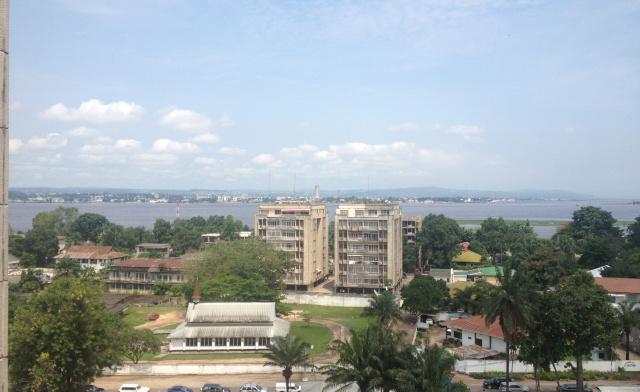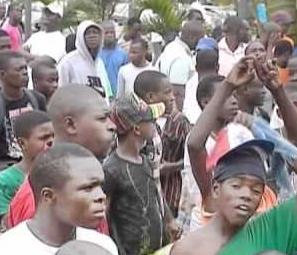President Mbeki on the A.U. Panel’s Approach to Darfur
Last week, President Thabo Mbeki, Chairman of the African Union Panel on Darfur, addressed a press conference in Khartoum. What follows below is a summary of his remarks.
The African Union Panel on Darfur will comment upon the issue of properly identifying the root cause of the rebellion that broke out in Darfur in 2003. This in turn will suggest what needs to be done to ensure that the conflict is settled and rebellion does not recur.
On the issue of peace negotiations, we note that this is a political conflict which requires a political solution and not a military solution, which is neither possible nor desirable.

We shall concentrate on the issue of who should participate in the negotiations to resolve the conflict. Everyone recognizes that resolving the crisis in Darfur is a national challenge. We have spoken to many people and we find that people generally want to be involved in helping to find a solution. So the question of who participates, and in what manner, are key questions for us to address.
There is the issue of sequencing the steps towards a solution. There must be negotiated agreements which relate to ending the war, a ceasefire etc., which must involve the belligerents, those who are carrying arms. There must also be negotiations about a Global Political Agreement, which will need to involve people in addition to the belligerents.
The Panel will say, these matters must be treated as urgent. Ways must be found so that no stage of the negotiations should become an obstacle to finding a solution. We must avoid the situation of spending a long time discussing who will sit at the table to negotiate the ceasefire, and therefore find things at a standstill on all other issues.
On the issue of the agenda of the negotiations, we shall also express ourselves. When negotiations are held towards a Global Political Agreement, we need to consider what should be the agenda and what principles should be followed. We have discussed this with many people in Sudan and the Panel has to reflect upon this question.
People in Sudan have confirmed to us that it is important to address the issue of justice. This is also part of our mandate. The issue is not to re-discuss that justice must be done in the light of the crimes committed. The issue is, how justice can be done, and what judicial institutions should be in place? We will reflect on these issues.

In making recommendations on justice, the matter of international justice was raised, in the form of the ICC. When we were in Addis Ababa we spoke to the press, and a question was raised about the ICC. When this was reported in the media, what was reported was the exact opposite of what we had said. So we should respect each other and make sure that what is reported is the truth. Everyone agrees that justice needs to be done, the question is how. What institutions should address this challenge? The Panel will reflect upon the ICC as well as the actions of the domestic judiciary, within the context of producing an overall package.
Similar issues arise in relation to reconciliation. To sustain peace, we also need a process so that the people involved can reconcile. We will address the question of what form these processes will take, and what can be done to ensure they are effective. As we reflect on the institutions and processes which will address this matter of reconciliation, we will consider how they must inspire sufficient confidence that they can do what is proposed for them.
These three matters of peace, justice and reconciliation, which we were mandated to look into, must be dealt with as an interdependent whole. Within this context of interdependence, we will look into institutions and mechanisms.
The next matter is good neighbourliness. It is important that Sudan should maintain good relations with its neighbours. We will comment on that. It is important that the neighbours should be able to act as a positive force. The region is relevant to the matters of peace, justice and reconciliation in Darfur.
The Panel will say that this matter needs to be treated as urgent. We will include some timeframes for action. At the same time we also do not want a hothouse atmosphere, which could make it impossible to find the correct solution. We will strive for urgency and flexibility in pursuit of agreements that are lasting and satisfactory.
General elections are scheduled for April 2010. The position of the Panel is that in any national elections, such as those of next year, the population of Darfur should be able to participate. The elections must be free and fair. So the necessary conditions will need to be created for that to be achieved.

We have worked closely with UNAMID and have come to understand the critical role that UNAMID is playing, with regard to peacekeeping, reconciliation and also humanitarian affairs. The Panel will make recommendations about UNAMID, its capacities and responsibilities.
Our deadline, as a Panel, is the end of September. We are still planning further consultations with the Armed Movements, which we will complete. We will extend these consultations to the neighbours and the wider international community. Those consultations are still outstanding.
Let me emphasise that we are not drafting a settlement that is going to be imposed on the Sudanese people. We are drafting recommendations to the African Union, which will suggest that it may want to proceed in a certain way. A settlement to the crisis in Darfur must come from decisions taken by the Sudanese people themselves in a context of inclusive negotiations.
Photographs from the Panel’s consultations in Darfur, June and August 2009.





